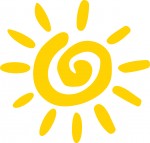Keeping Kids Off the Summer Slide
In 1996, in a synthesis of 39 separate studies,  researchers found that the average student, returning to school in September has lost the equivalent of 1.0 to 2.6 months of previous learning—in effect, erasing this amount of learning from their mind. According to the report, the biggest losses occur in the areas of spelling and computational math (multiplication, addition, etc.). The good news for both parents and students is [by having a summer learning plan and acting on it] that this “academic atrophy” can be reduced and even eliminated.
researchers found that the average student, returning to school in September has lost the equivalent of 1.0 to 2.6 months of previous learning—in effect, erasing this amount of learning from their mind. According to the report, the biggest losses occur in the areas of spelling and computational math (multiplication, addition, etc.). The good news for both parents and students is [by having a summer learning plan and acting on it] that this “academic atrophy” can be reduced and even eliminated.
– Rob Stringer, Educational and Parenting Consultant, July 15, 2005
Many parents are unaware of the effect summer break may have on their childs learning achievement. The “summer slide” describes what happens when young minds sit idle for three months. Experts agree that children who read during the summer gain reading skills, while those who do not often slide backward. This academic decline affects millions of kids – but it doesn’t have to.
Summer may be the time to relax and enjoy the sun, but it can also be the perfect time to begin helping your children bridge the gap in learning between the end of one school year and the beginning of the next one. With the planning of family vacations, or pool time don’t forget to engage your kids in activities that can be done at home or on the road.
Here are a couple ideas to keep kids busy:
Set time aside for hands on discovery. While at the beach search for seashells and learn about the different kinds, check out tide pools, or if you aren’t near the beach go to your local grocery store and buy different types of seaweed to let children taste and learning about the different types!
Scholastic, together with Reading is Fundamental (RIF) and the National Summer Learning Association, is challenging kids to Read for the World Record, to help keep kids reading and learning all summer long. The Scholastic Summer Challenge is a global summer reading program with an online community for kids, engaging activities, summer book lists, and resources for librarians and educators – and it’s all free.
For students age 13 to 25 The New York Times is hosting a summer challenge to post their comment on questions about issues in the news. Teachers, librarians and parents can use this challenge to engage children in forming and writing about their opinions while learning about world issues.
All students need to do is visit the New York Times website weekly to share the articles, columns, blog posts, photos, graphics, videos and podcasts you’ve found interesting, and tell why they were chosen.
